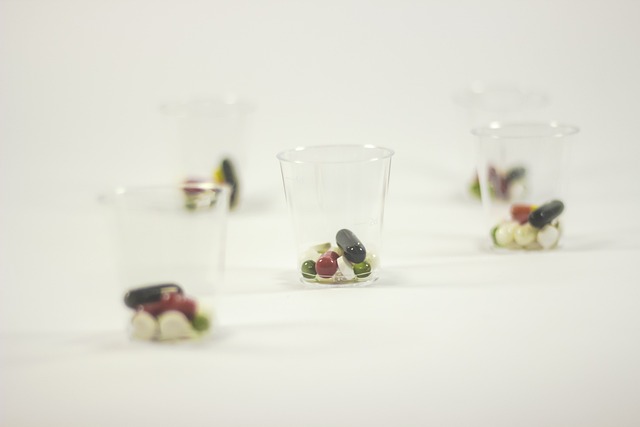
The placebo effect, a fascinating phenomenon where individuals experience relief from symptoms simply by believing they are receiving a treatment, has captivated scientists and physicians for centuries. The very notion that our minds can influence our bodies, often to remarkable degrees, speaks to the intricate and powerful connection between our thoughts and our physical well-being. However, the exact mechanisms behind this intriguing phenomenon have remained a subject of intense investigation and debate. For many years, researchers have posited that dopamine, the neurotransmitter often associated with pleasure and reward, plays a crucial role in the placebo effect. This hypothesis, while appealing in its simplicity, has recently been challenged by a groundbreaking study, which suggests that dopamine may not be the primary driver of this complex phenomenon.
Imagine, if you will, a patient suffering from chronic pain. They are offered a new treatment, a pill promising relief. Unbeknownst to them, the pill contains no active ingredients, but they are told it is a potent pain reliever. As they swallow the pill, a wave of hope washes over them, and they anticipate the alleviation of their discomfort. This anticipation, this belief in the efficacy of the treatment, is a fundamental component of the placebo effect. While previous research suggested that dopamine, the neurochemical that orchestrates feelings of reward and pleasure, was the key player in this intricate dance of belief and healing, recent findings have cast doubt on this long-held assumption.
Deconstructing the Dopamine Myth: A Deeper Dive into Placebo Mechanisms
The conventional wisdom, often perpetuated by popular media, suggested that dopamine, the neurotransmitter associated with pleasure and reward, was the key driver behind the placebo effect. This assumption was rooted in the observation that many pleasurable activities, such as eating delicious food or listening to your favorite music, trigger a surge of dopamine in the brain. As the placebo effect, in many cases, involves a sense of relief and well-being, the link between dopamine and the placebo effect seemed logical. However, as with many alluring hypotheses, the reality is far more intricate.
Unveiling the Limitations of Dopamine-Centric Models
The role of dopamine in the placebo effect has been extensively researched, leading to a wealth of data and insights. However, recent studies have illuminated some critical limitations of the dopamine-centric model. It's crucial to recognize that the human brain is an incredibly complex system, with a vast network of interconnected neural pathways and neurochemicals. While dopamine is an important player in many functions, including reward and learning, it's not the sole orchestrator of the placebo response.
Studies have shown that individuals with Parkinson's disease, who have reduced dopamine levels in their brains, still exhibit a placebo effect. This observation challenges the notion that dopamine is an indispensable element in the placebo response. Additionally, recent research has identified other neurotransmitters, such as endorphins, which are naturally occurring pain relievers, and serotonin, associated with mood regulation, as potential players in the placebo effect.
Reframing the Placebo Effect: A Multifaceted Phenomenon
The latest findings suggest that the placebo effect is not simply a dopamine-driven phenomenon but a complex interplay of multiple brain systems, including those involved in expectations, learning, and conditioning. Imagine, for instance, a person who has been experiencing chronic headaches for years. They have tried various medications, with varying degrees of success. They are then introduced to a new treatment, a combination of acupuncture and herbal remedies. They have been told that this approach is highly effective, and they approach the treatment with a hopeful and positive attitude. This positive anticipation, coupled with their past experience with pain relief, influences their perception of the treatment's effectiveness. The brain, in response to this belief, begins to release a cascade of neurochemicals, including endorphins, which naturally reduce pain perception.
Furthermore, the brain's ability to learn and adapt plays a significant role in the placebo effect. Imagine a child who is experiencing an earache. They are given a sugary solution, which is presented as a potent medicine. While the sugary solution has no medicinal properties, the child, believing it to be a cure, experiences relief from their earache. This experience, repeated over time, becomes ingrained in the child's mind, creating an association between the sugary solution and the alleviation of pain. This association is strengthened through repeated exposure and becomes a form of learned conditioning. The brain, in response to this learned association, releases neurochemicals, such as endorphins and serotonin, to reduce pain perception and improve mood.
Embracing the Power of Belief: Harnessing the Placebo Effect
The placebo effect, while often seen as a curious phenomenon, holds immense potential for improving health and well-being. Understanding the mechanisms behind this effect allows us to utilize it more effectively in clinical practice. As healthcare professionals, we can actively engage in strategies that foster positive expectations in our patients, encouraging a belief in the treatment's efficacy.
The Role of Physician-Patient Communication
The physician-patient relationship plays a vital role in harnessing the placebo effect. A strong, trusting relationship built on empathy and open communication can significantly enhance the placebo response. Doctors who listen attentively to their patients, understand their concerns, and provide clear explanations about the treatment plan can positively influence patient expectations and belief in the treatment. For instance, a physician explaining to a patient with chronic back pain that while the medication they are prescribing may not completely eliminate their pain, it will likely reduce its severity and improve their quality of life, can foster a positive expectation in the patient, leading to a more favorable outcome.
Beyond Pills: The Power of Rituals and Placebo Procedures
The placebo effect is not limited to medications. Rituals and procedures, such as acupuncture, massage, and even specific forms of exercise, can also elicit a placebo response. The mere act of engaging in a ritual, often accompanied by a sense of purpose and meaning, can influence the brain's neurochemical response, leading to symptom improvement. For example, a person experiencing chronic pain may find relief through regular yoga practice. The combination of physical postures, deep breathing exercises, and mindful meditation can activate the brain's natural pain-relieving mechanisms, contributing to a sense of well-being and pain reduction.
The Nocebo Effect: The Flip Side of the Placebo
While the placebo effect represents the power of positive expectations, the nocebo effect illustrates the darker side of belief. The nocebo effect occurs when negative expectations and beliefs lead to adverse experiences, even in the absence of any actual harm. This phenomenon highlights the importance of acknowledging and addressing patient fears and anxieties.
For instance, a patient being told about potential side effects of a medication, even if these side effects are rare, may experience those side effects simply because they anticipate them. This highlights the critical role of transparent and empathetic communication in healthcare. Physicians must be mindful of the language they use and strive to avoid creating unnecessary anxiety or negative expectations in their patients.
Ethical Considerations and Future Directions
The placebo effect, while powerful, raises important ethical considerations. Should we deliberately deceive patients for therapeutic benefit? While using a placebo as a treatment may seem like a violation of trust, there are situations where it may be ethically justified, particularly in cases where conventional treatments have failed, and patients are desperate for relief. However, transparency and informed consent are crucial. Patients should be informed about the use of placebos and have the right to decline such treatment.
The ongoing research on the placebo effect holds immense promise for advancing our understanding of the brain and its connection to health and well-being. Future research may unveil even more intricate mechanisms behind this fascinating phenomenon, potentially paving the way for new and innovative therapeutic approaches that tap into the power of belief and harness the brain's innate healing capabilities. The future of medicine may see a greater integration of mind-body practices, personalized treatments that cater to individual beliefs and expectations, and a deeper understanding of the neurobiological underpinnings of the placebo effect. We may find ourselves entering an era of medicine that not only treats the body but also nurtures the mind, fostering a more holistic and empowering approach to health.
"The placebo effect is a powerful reminder that our minds have a profound impact on our bodies." - Dr. Andrew Weil
Space for advertisement
SCIENCE
Oct 25, 2024
The Placebo Effect: Unmasking the Mystery Beyond Dopamine
The placebo effect is a powerful phenomenon, but dopamine may not be the key player.

